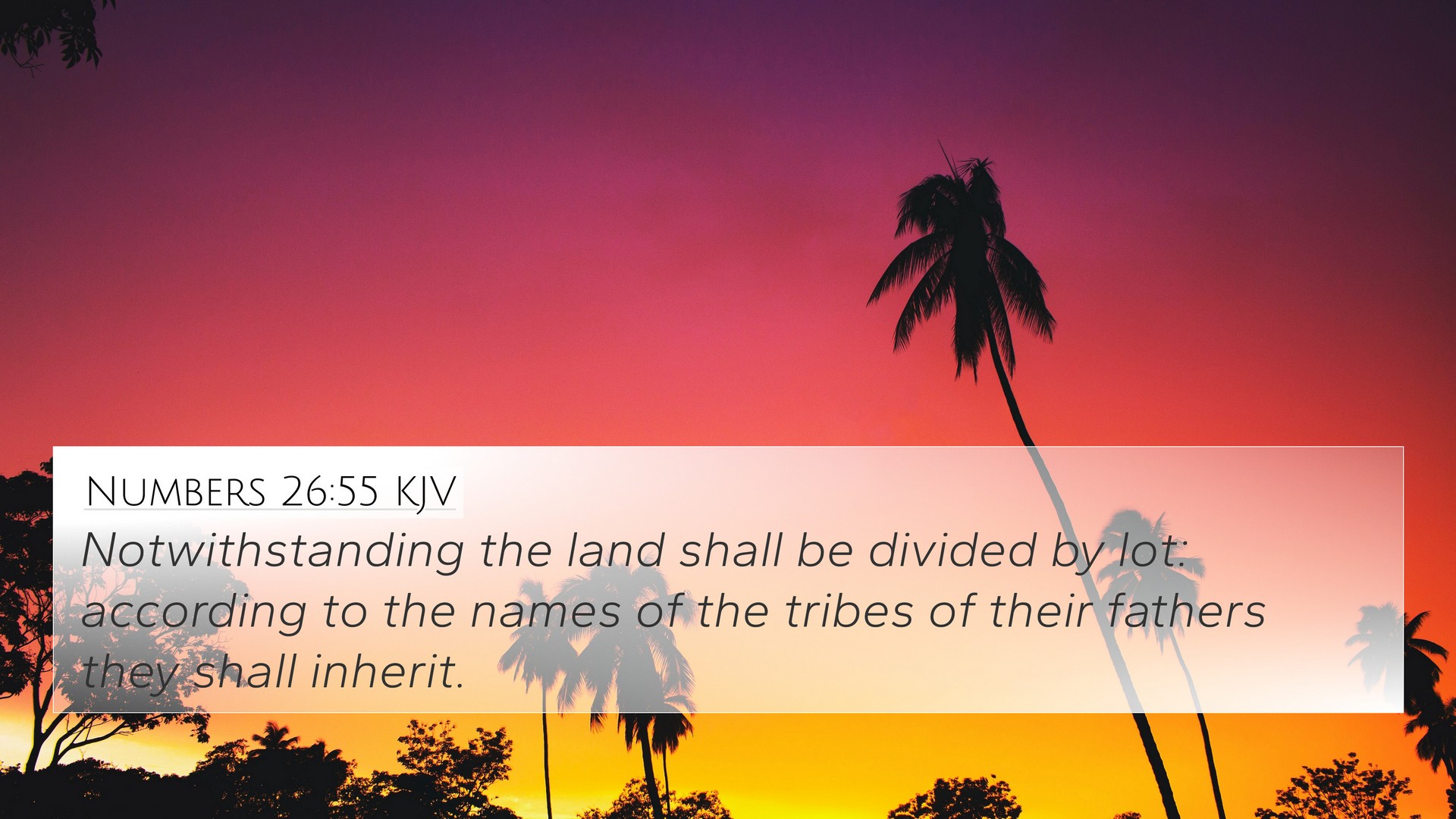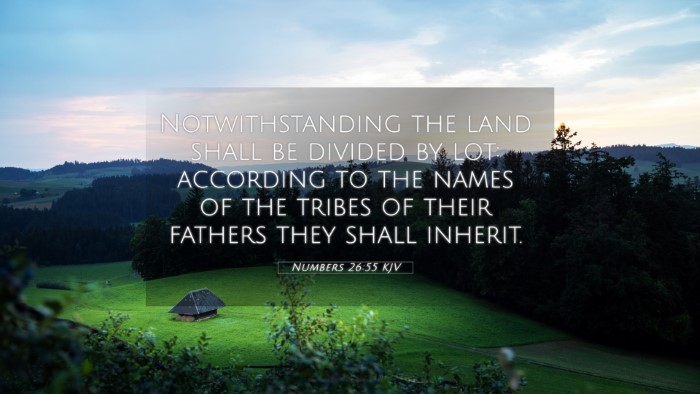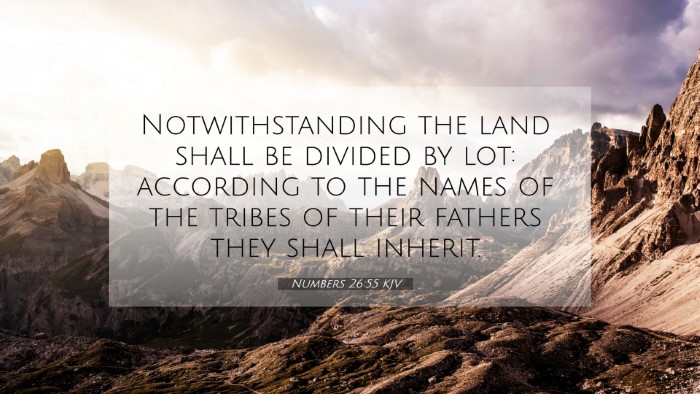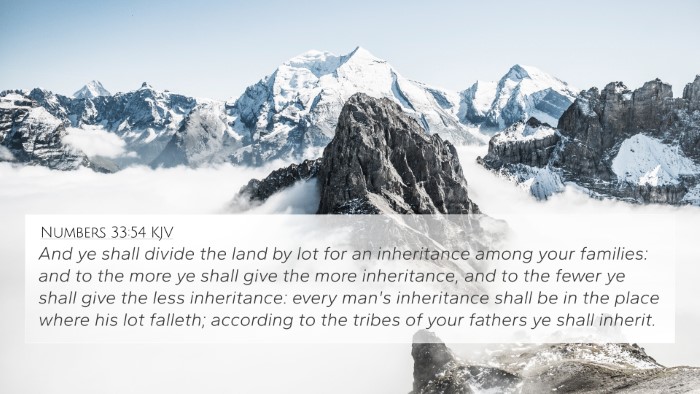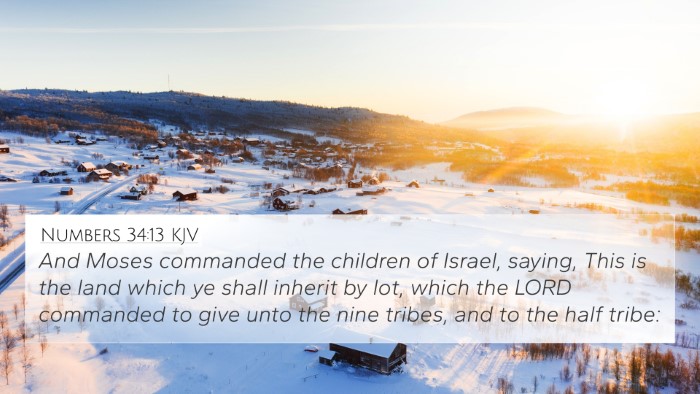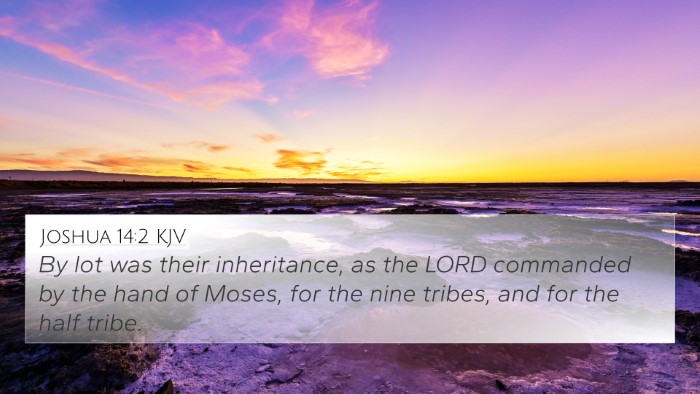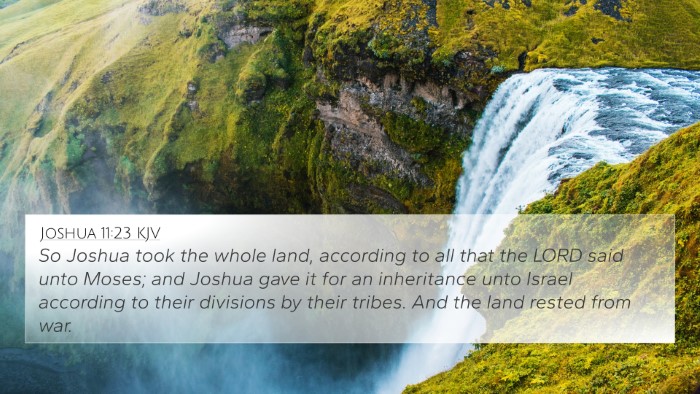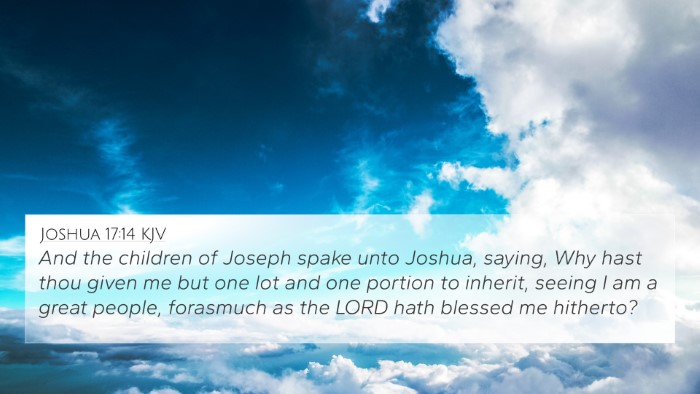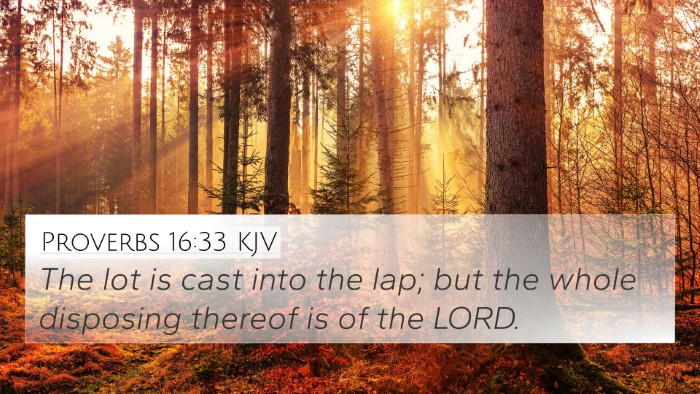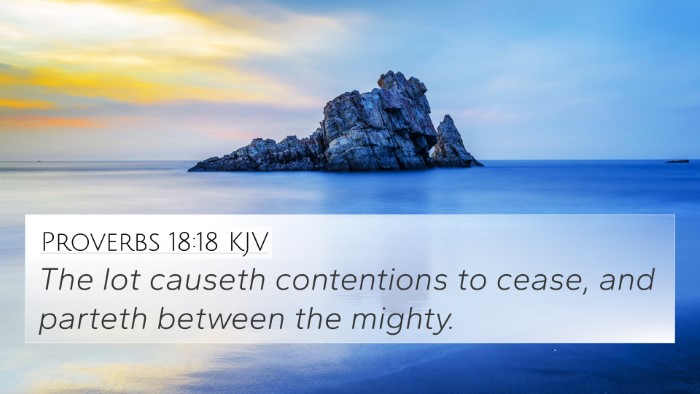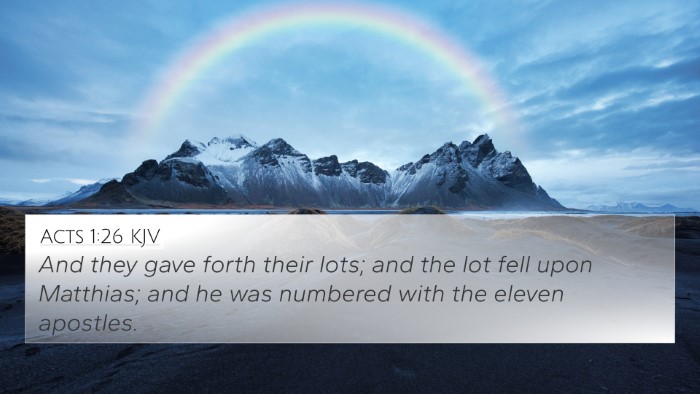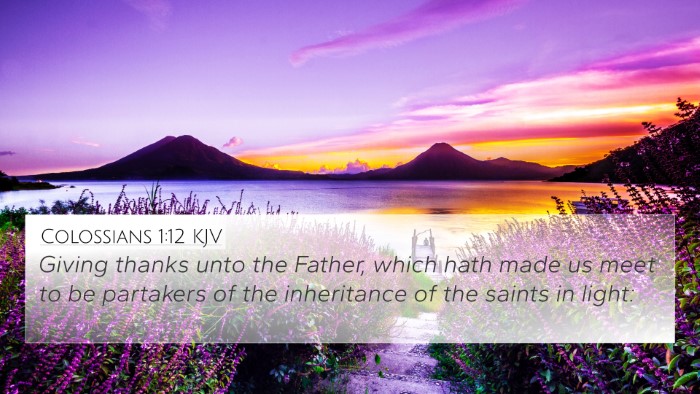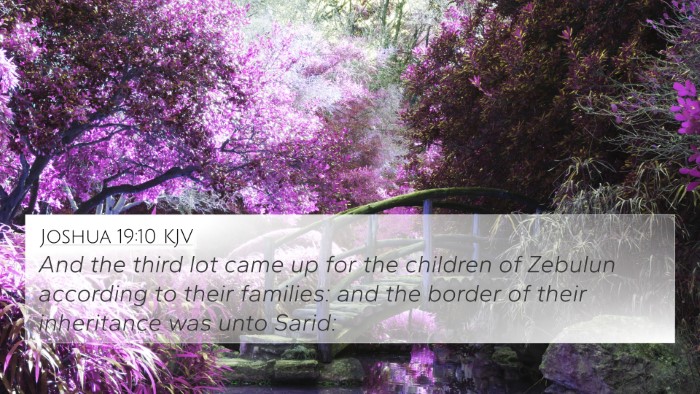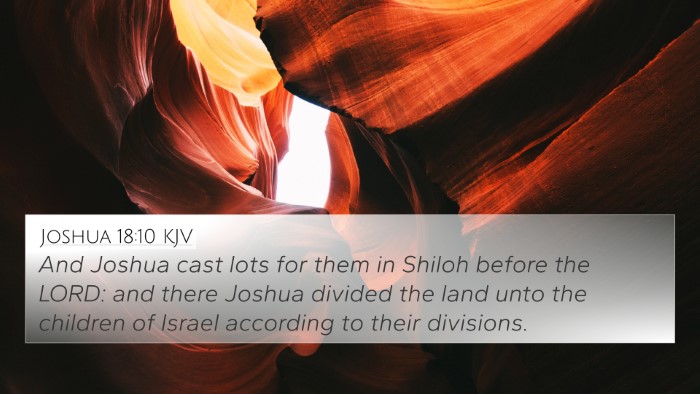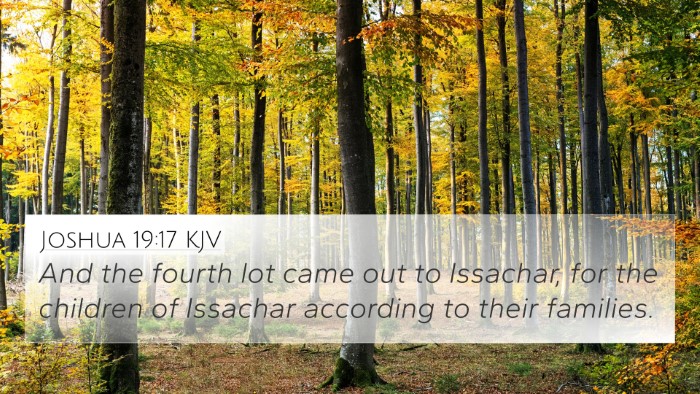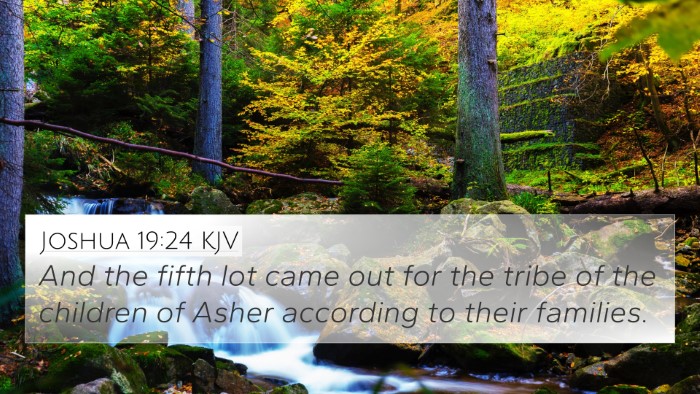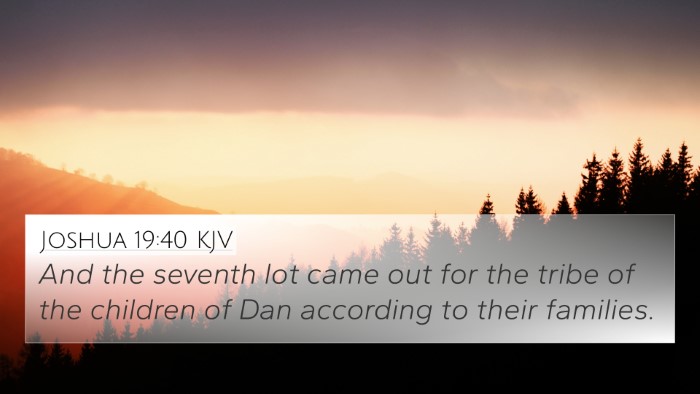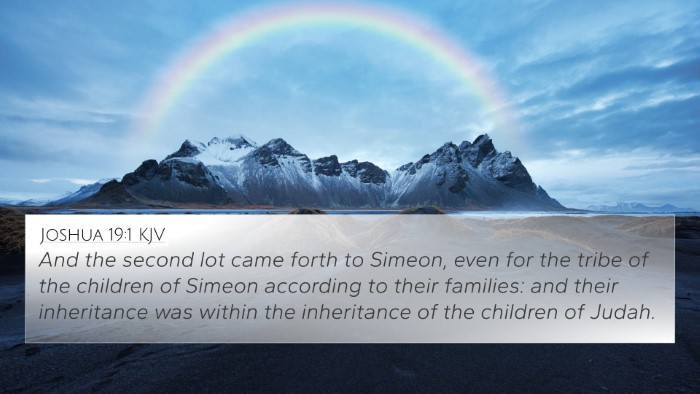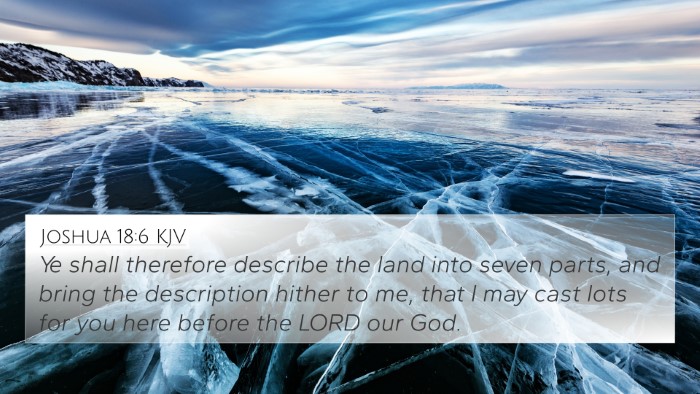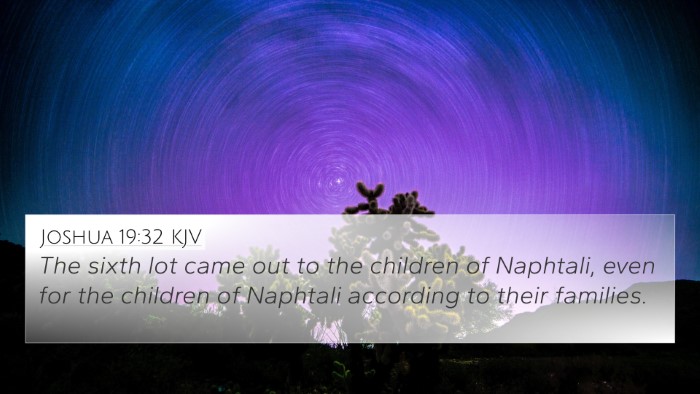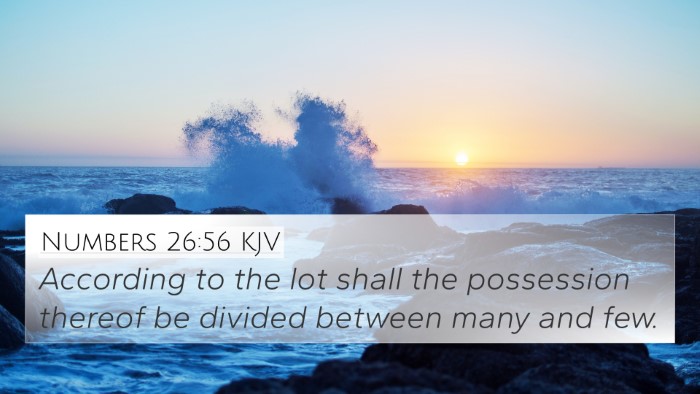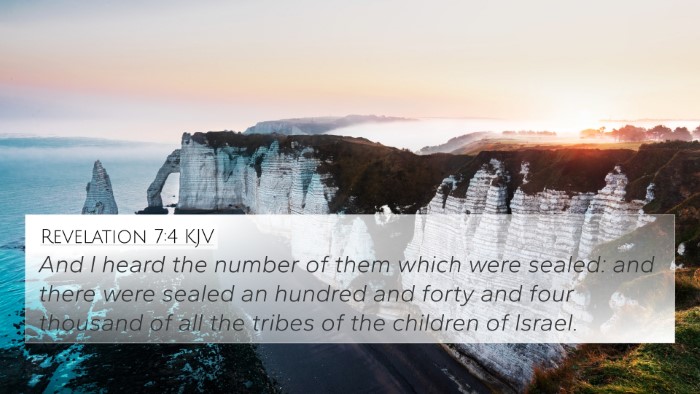Understanding Numbers 26:55
Verse: “But the land shall be divided by lot; according to the names of the tribes of their fathers they shall inherit.” (Numbers 26:55)
This verse comes in the context of Israel’s inheritance of the Promised Land, emphasizing the importance of divine guidance in allocation and the divisions of land among the tribes of Israel. Public domain commentaries like those by Matthew Henry, Albert Barnes, and Adam Clarke provide deep insights into the meaning and implications of this passage.
Commentary Insights
Matthew Henry's Commentary
Henry explains that the division of the land by lot symbolizes God's sovereignty over Israel's inheritance. Each tribe, identified by their ancestral names, received a portion determined by divine ordinance rather than human choice. This method signifies the integration of faith and reliance on God's will in territorial affairs, embodying the principle that land ownership among the Israelites is not merely material but deeply spiritual, bound to their covenant with God.
Albert Barnes' Notes
Barnes adds that the lot serves as a significant divine mechanism for establishing the inheritance rights of the tribes. It represents the impartiality of God's judgment in providing for His people while underscoring the importance of each tribe’s lineage. This ensures that every tribe receives its due portion consistent with God's promises to Abraham, Isaac, and Jacob, reinforcing the continuity of the covenant people. He also suggests that the casting of lots is a method endorsed by God, unlike the arbitrary nature of human decisions.
Adam Clarke's Commentary
Clarke highlights the necessity for equitable division of the land and posits that drawing lots reflects God's justice and mercy. He points out how this approach prevents conflict over land among the tribes by diverting humanity's impulses toward greed. Clarke indicates that the focus on tribal names not only honored heritage but also reminded the Israelites of their history and responsibilities as the people of God. He recognizes this act as a fulfillment of God's promises, providing order and unity in the community.
Key Theological Themes
- Divine Sovereignty: God's authoritative role in determining the fate of the tribes illustrates His control over nature and history.
- Faith and Trust: This verse imparts the lesson of trusting in God's wisdom in decisions that affect community and legacy.
- Covenantal Promises: Emphasizes the fulfillment of God’s promises as each tribe is reminded of its heritage through ancestral names.
- Unity and Order: The casting of lots mitigates disputes and fosters unity among God’s people, reflecting the essentiality of communal harmony.
Cross-References
This verse is enriched when cross-referenced with several other scriptures that highlight similar themes of land inheritance, divine allocation, and tribal heritage.
- Deuteronomy 1:8: "See, I have set the land before you; go in and take possession of the land that the Lord swore to your fathers..."
- Joshua 14:1-2: "These are the inheritances which the children of Israel took in the land of Canaan..."
- Numbers 33:54: "And you shall divide the land by lot as an inheritance..."
- Psalm 78:55: "He drove out the nations before them and allotted them their land..."
- Hebrews 11:8-9: "By faith Abraham obeyed when he was called to go out to the place... dwelling in tents, with Isaac and Jacob, the heirs with him of the same promise."
- Joshua 18:10: "And Joshua cast lots for them in Shiloh before the Lord..."
- Micah 2:5: "Therefore you will have no one to determine boundaries by lot..."
Comparative Bible Verse Analysis
The thematic connections across these passages underscore the centrality of God’s involvement in the distribution of land and blessings. The collaborative themes reiterate God’s promise-keeping nature and His desire for equitable distribution among His people. This creates a comprehensive understanding of how numerous Bible verses relate to the overarching narrative of inheritance, community, and faith.
Conclusion
Numbers 26:55 is not merely a statement on land distribution; rather, it encapsulates deep theological principles about divine sovereignty, the significance of heritage, and God’s faithful promise-keeping. By engaging in comparative Bible verse analysis and utilizing tools for Bible cross-referencing, readers can further deepen their understanding of Scripture’s interconnectedness. Such exploration aids believers in recognizing the nuanced dialogues throughout the Bible, reinforcing faith and knowledge in the journey of understanding God’s Word.
